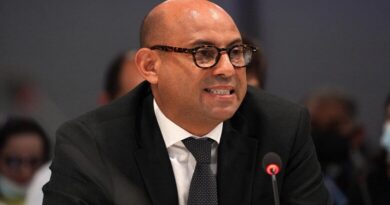Banks, UN commit to climate transparency in financial markets
Together with the UN Environment Finance Initiative (UNEP FI), eleven of the world’s leading banks announced on Tuesday July 11, 2017 a commitment to develop analytical tools and indicators to strengthen their assessment and disclosure of climate-related risks and opportunities. Following the publication last month of the final recommendations by the Financial Stability Board’s (FSB) Task Force on Climate-Related Financial Disclosures (TCFD), the banks not only welcome the recommendations but are the first from their industry to work towards adopting key elements of the ground-breaking framework.
“The message from financial heavyweights is clear – climate change poses a real and serious threat to our economy,” said Head of UN Environment, Erik Solheim. “At the same time, there are enormous business opportunities in taking climate action. Transparency on how financial institutions mitigate the risks and seize the opportunities of a two degrees pathway is crucial to move international markets towards actively supporting a low-carbon and climate-resilient future.”
The Financial Stability Board, chaired by Bank of England Governor Mark Carney, mandated the Task Force to develop voluntary, consistent climate-related financial risk disclosures for use by companies, investors, lenders and insurers. Increasing the amount of reliable information on financial institutions’ exposure to climate-related risks and opportunities will strengthen the stability of the financial system and help boost climate‑friendly investments. Chaired by the former Mayor of New York, Michael Bloomberg, the Task Force’s final recommendations were published at the end of June and submitted to the G20 last week.
The recommendations are welcomed by financial institutions and civil society alike, as the role of the finance sector in meeting the Paris Climate Agreement’s goals becomes increasingly clear. This first mover project to implement the recommendations puts the eleven UNEP FI members in the vanguard of this effort. Its results will be made public to encourage banks worldwide to adopt the scenarios, models and approaches developed.
“Sustainable finance is about two imperatives: improving the contribution of finance to sustainable, low-carbon and inclusive growth, and ensuring financial stability in light of environmental risks such as climate change,” said Christian Thimann, Group Head of Strategy, Sustainability and Public Affairs at the AXA Group, Co-Chair of UNEP FI and TCFD Vice-Chair. “The TCFD framework emphasizes how achieving these two goals requires that financial and non-financial corporations provide more transparency on how they plan to address the risks and opportunities related to climate change.”
“After the G20, the issue now is about implementation: how can the finance industry put the framework into practice and deliver disclosure that is meaningful? Through this and other industry-led working groups UNEP FI is helping the finance sector to do just that: move from awareness to action.”
Vasuki Shastry, Global Head, Public Affairs and Sustainability, Standard Chartered:“Climate change is a problem which requires global ambition and action; the work of the Taskforce on Climate-Related Financial Disclosures is an important step in delivering this. We look forward to working collaboratively through the UN Environment Programme to explore how these disclosures can be practically implemented by the banking sector.”




